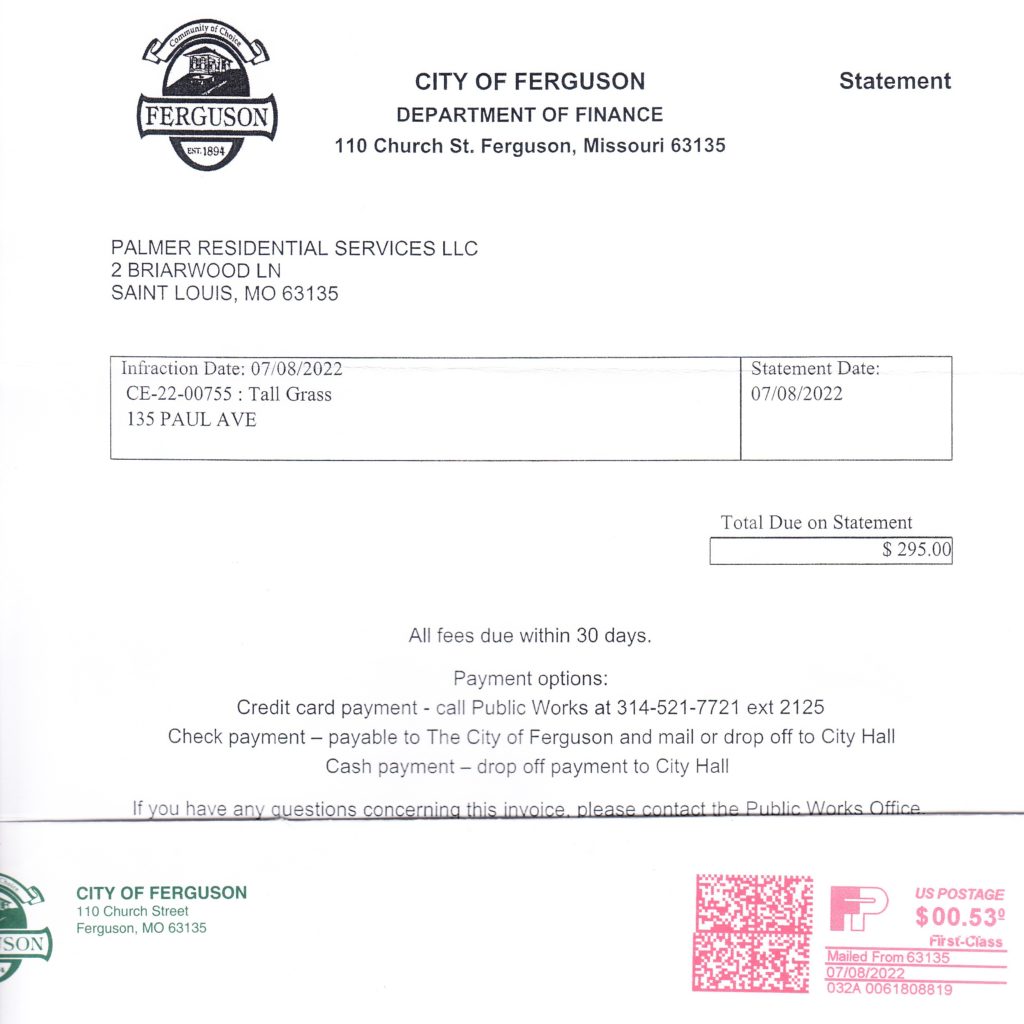As we previously reported, city council rejected a bid from Mike Palmer to perform nuisance abatement services, due to a faulty interpretation of the state’s conflict of interest law by the mayor and her allies on council. Because Palmer recused himself from the vote, there was not a majority to approve the contract. Now, with only one ill equipped vendor mowing abandoned houses and vacant lots, residents have observed poor quality of work, and council members have complained that the work is not getting done.
At the council meeting where contracts were considered, members of the mayor’s faction suggested that Mr. Palmer resign if he wanted a mowing contract. Now, incredibly, their preferred vendor attempted to bill the city for mowing at Palmer’s own property. According to a bill issued on July 8, grass at Palmer’s office, at 135 Paul Avenue, was 40 inches tall, and took two hours to mow.

According to Palmer’s business records, his grass was mowed on July 2. Upon being confronted with this fact, Jenkins claimed that he billed it for the wrong address because “The mail at this property said 135 Paul however Zillow has it as 126 Paul. The correct address was cut the wrong address was billed.” But in fact, 126 Paul is on the other side of Paul, and across the creek, from Palmer’s office building.
The city sent an invoice to Palmer, adding a $65 service fee. The city’s invoice was dated and postmarked with the same date as the invoice from Jenkins.

Several important questions arise from this situation. First of all, since the city requests the mowing of specific addresses, Jenkins is never in the position of having to figure out the address of a property he has mowed. So why does he claim that the “mail” at this residence bore Palmer’s address? And indeed, why was he looking at mail at all? That is a violation of federal law. But it also leads us to question the city’s accounts payable procedure. Does the city blindly pay invoices without confirming that the city actually ordered and received the product or service for which they are being charged? In other organizations, a responsible party must approve invoices before they are paid. Does the city have such a procedure? If they do, was it followed in this case? How was an invoice approved for mowing a property which the city did not request?
Even if you forgive this error, there is a more serious problem with the invoice. Jenkins’ bid included a fee ranging from $65 to $80 per hour, depending upon the grass length. This invoice, which the city apparently approved, charges a rate of $115 per hour.

Invoicing at a bill rate which exceeds the contractual limit is a serious breach of contract. In his short tenure with the city, he has proven both careless and dishonest. Council should immediately demand a copy of all invoices submitted by Jenkins, so that they can be independently reviewed for compliance. And the city should cease using this contractor immediately.
